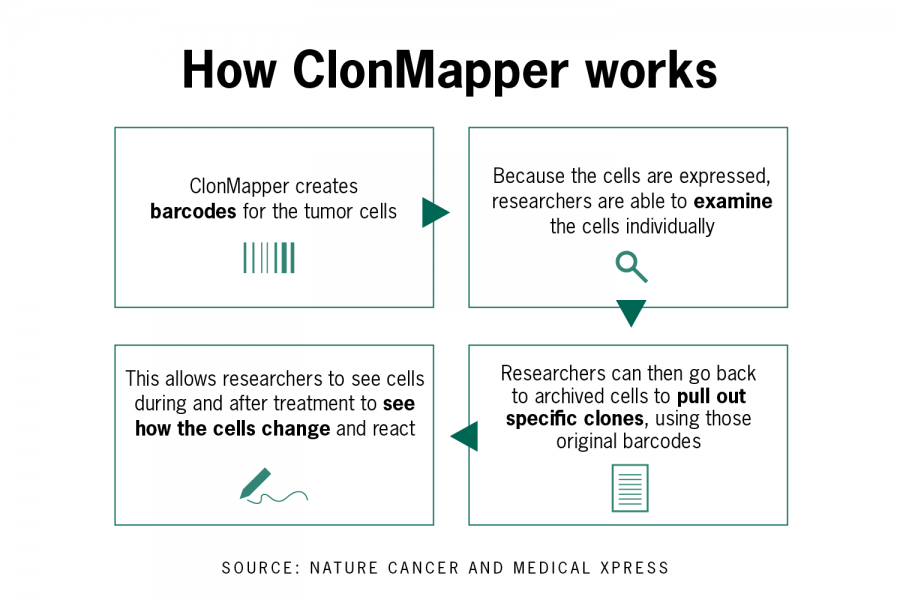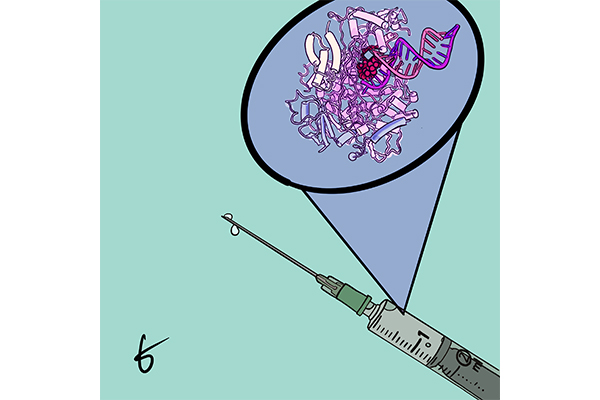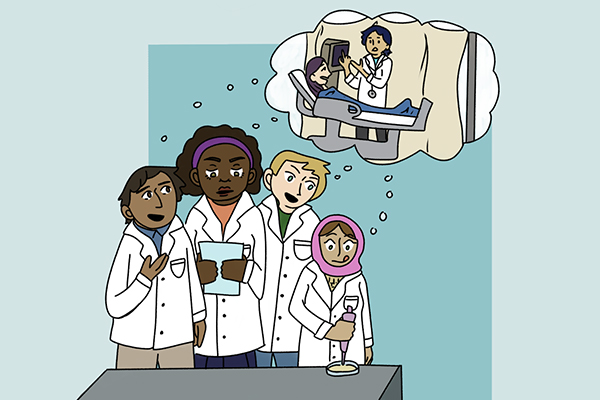Community hospitals, academic medical centers and other sites that participate in clinical trials could save time and resources with a standardized system of certification.
A recent article co-authored by Clay Johnston, Dell Medical School dean, suggests that a voluntary system of site accreditation may reduce costs and improve the efficiency of clinical trials. Accreditation is similar to the certification of individuals, except that it happens at an institutional level. Johnston said that he first became interested in improving the clinical trial system after he noticed problems during his own experience with running trials.
“(As a whole) clinical trials work very poorly,” Johnston said. “One trial that we’re just finishing, it (took) eight years to finish it. And the costs are really outrageous, that trial alone costs about $60 million … I could see that there were things that we had to work on (to improve the clinical trial process).”
Accreditation of sites may offer a potential solution to some of these problems. Accreditation has facilitated quality control in the past, such as with stroke care, Johnston said.
“Strokes used to be cared for very poorly in the U.S.,” Johnston said. “They created an accreditation system for hospitals to be stroke centers, and that definitely improved care.”
With clinical trials, accreditation would indicate that the site has a set of resources or capabilities that are required to run trials, said Michael Kurilla, the Clinical Innovation Director of the National Center for Advancing Translational Sciences (NCATS) at the National Institutes of Health.
Institutions seeking accreditation would have to meet certain standards for patient safety, data quality and efficiency, Johnston said.
Accreditation may offer significant benefits to sites, such as speeding up the approval and documentation process for clinical trials, Johnston said.
“It can take a site three to six months to prepare (the necessary) documents, while those documents are mostly the same from trial to trial,” Johnston said. “Accreditation allows you to say, that site has those documents. (That site) can participate in any trial.”
Accreditation can also reduce the burden on the sponsors of clinical trials, such as companies or NIH institutes, Kurilla said. Sponsors would no longer have to spend time and resources trying to determine if a site is capable of running a clinical trial.
Eliminating that duty would substantially reduce costs and permit sponsors to invest in more trials, according to Kurilla.
“Each trial will be a little cheaper (when you can) rely on site accreditation to self-select the ones that will be conducted properly,” Kurilla said.
Both Kurilla and Johnston said they recommend that the system be voluntary rather than mandatory.
“Regulatory bodies can be overly oppressive in the ways they set rules,” Johnston said. “A voluntary system forces the accreditor to be on the site’s side, or the site won’t choose to be accredited. It creates a more responsive system.”
Kurilla added that the FDA already has regulations to ensure that data meets certain standards.
“There are already regulations about what you have to do, (they) just don’t say how you have to do it,” Kurilla said. “And accreditation is … simply addressing what people have to do anyway.”
There is substantial support for establishing an accreditation process, according to Johnston.
“The sponsors are very interested because they want to make the processes more efficient,” he said. “The sites that are more sophisticated want it because they see that it makes their lives better.”
On the other hand, convincing diverse entities, such as drug companies, NIH institutes and individual investigators, to agree to a common set of standards may be challenging, Johnston said.
“Each of (these different entities) will have to agree to adopt a common one and ignore the special things that they liked before,” Johnston said. “But I think we’ll be able to overcome that, because they gain so much together by using a common set.”
Currently, Johnston said that he and his team are developing this common set of standards and expect to have completed it by the end of this summer.
“We’re collecting all the standards that are currently used by individual (groups), could be by drug companies or the National Institutes of Health,” he said. “From them we’re coming up with one set of standards. So that’s the starting point — making sure everyone’s happy with those.”




















